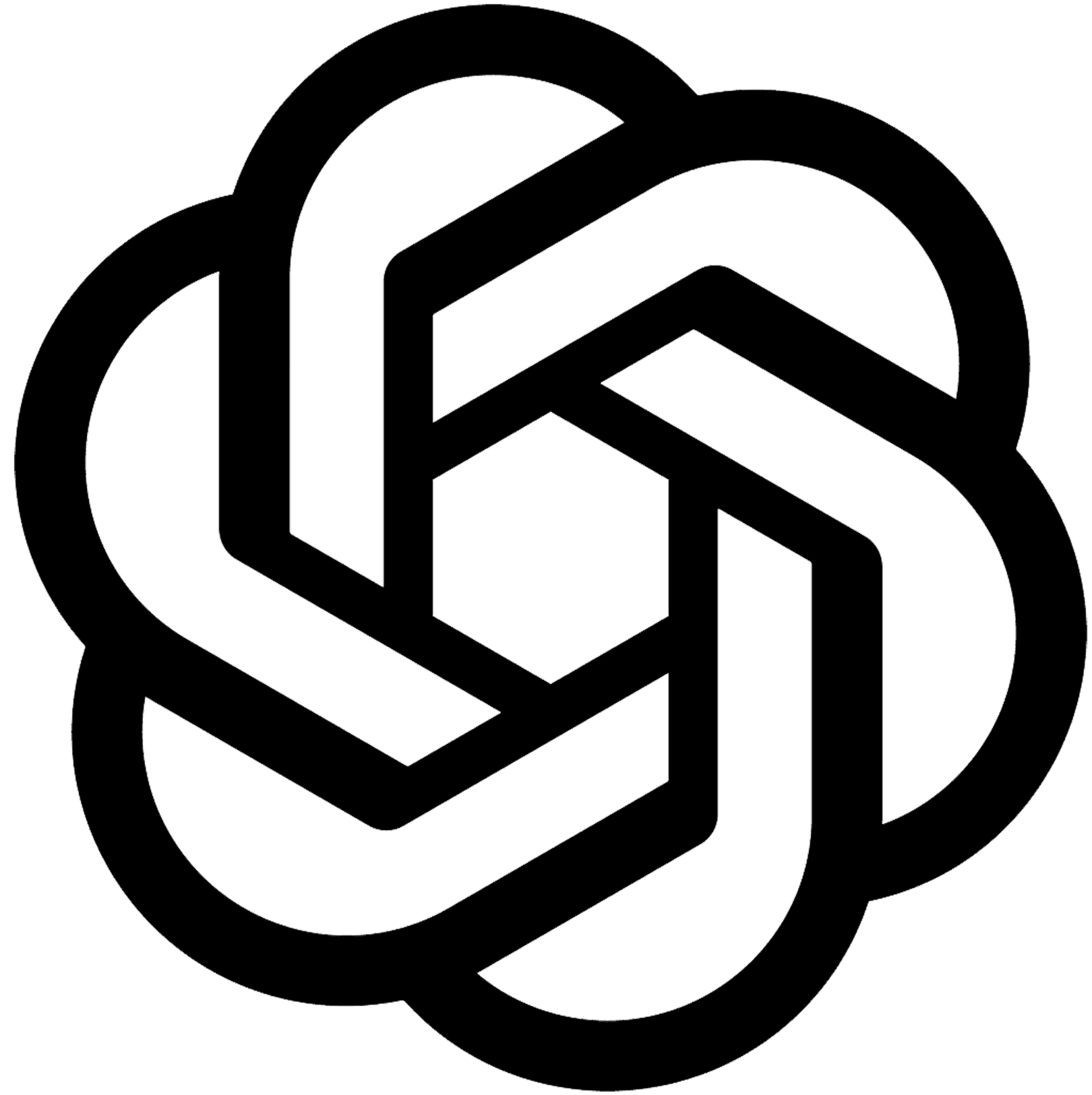Are You Earning Up to Your Potential?
Most personal trainers are undervaluing their time and skills. Our Personal trainer Revenue Calculator helps you find out what you should be making, and how to get there.
No guesswork. Just real numbers.
.jpg)
Meal planning apps are revolutionizing nutrition management for health professionals and individuals alike. These powerful digital tools offer a sophisticated solution to the perennial challenge of maintaining a healthy diet in our fast-paced world. By combining cutting-edge technology with nutritional expertise, these apps transform how nutritionists, personal trainers, and health-conscious clients approach meal preparation and dietary planning.
At their core, these apps serve as comprehensive nutritional assistants, streamlining the process of creating balanced, delicious meals while optimizing cost-effectiveness and reducing food waste. For health professionals, they represent a significant advancement in client service capabilities, offering enhanced tools for personalized meal planning, progress tracking, and nutritional education.
Let's uncover how these apps bridge the gap between nutritional science and practical, everyday implementation. Also, look at the best meal-planning apps for you as a nutritionist or a personal trainer.

The Rise of Meal Planning Apps
Meal planning apps have gained immense popularity in recent years, and for good reason. They comprehensively answer the age-old question: "What should" I eat?" By providing a platform to create personalized meal plans, these apps help users make informed decisions about their diet, considering their specific nutritional needs, food preferences, and dietary restrictions.
For nutritionists and personal trainers, these apps are game-changers. They streamline the process of creating custom meal plans for clients, saving time and effort while ensuring each plan is tailored to the individual's uniqueness. Whether the goal is to lose weight, build muscle, or maintain a balanced diet, meal planning apps offer the flexibility and functionality needed to achieve these objectives.
Top Meal Planning Apps for Nutritionists and Personal Trainers
While many apps offer meal planning features, some are particularly useful for health professionals. Here are some of the top meal-planning apps to consider:
MyFitnessPal:
Known for its extensive food database and integration with fitness devices, MyFitnessPal offers robust meal-planning features and detailed nutritional information. It allows users to create custom meal plans, track macronutrients, and sync with various fitness trackers. The app's comprehensive nutrition data helps users make information about their diet and achieve their health goals.

App Highlights:
- Key Features: Extensive food database, custom meal plans, macronutrient tracking
- Integration: Various fitness trackers
- Dietary Options: Multiple diet types are supported
- Unique Selling Point: Comprehensive nutrition data
- Best For: Detailed nutrition tracking and fitness integration
Mealime:
This app focuses on quick, healthy recipes and generates grocery lists automatically. It's great for those looking to save time in the kitchen. The app Mealime offers personalized meal plans based on dietary preferences and restrictions, including gluten-free, low-carb, and vegetarian options. Its user-friendly interface makes meal planning and grocery shopping a breeze.
App Highlights:
- Key Features: Quick healthy recipes, automatic grocery list generation
- Integration: Compatible with popular grocery delivery services like Instacart and Amazon Fresh
- Dietary Options: Gluten-free, low-carb, vegetarian, and more
- Unique Selling Point: Time-saving focus
- Best For: Busy individuals looking for quick, healthy meal options
Plan to Eat:
Plan to Eat allows users to import recipes from various sources and create custom meal plans, ideal for those who love to create recipes. It offers a drag-and-drop meal planner, making it easy to organize weekly meals. The app also generates intelligent shopping lists and helps reduce food waste by utilizing ingredients efficiently.
App Highlights:
- Key Features: Recipe import, drag-and-drop meal planner, intelligent shopping lists
- Integration: Compatible with popular grocery delivery services like Instacart and Amazon Fresh and can sync with calendar apps like Google Calendar
- Dietary Options: Customizable for any diet
- Unique Selling Point: Efficient ingredient utilization
- Best For: Who enjoy creating their own recipes and meal plans
Paprika:
This versatile app offers meal planning, recipe management, and grocery list creation in one package. It's beneficial for those who enjoy cooking and experimenting with nIt'secipes. Paprika allows users to scale recipes, add notes, and create categories for easy organization. Its cloud sync feature ensures that meal plans are accessible across multiple devices.
App Highlights:
- Key Features: Recipe management, meal planning, grocery list creation
- Integration: Cloud sync across devices
- Dietary Options: Customizable for any diet
- Unique Selling Point: This is an all-in-one recipe, and this app specializes in meal-planning solutions.
- Best For: Cooking enthusiasts who like to experiment with recipes.
Eat This Much:
The app specializes in personalized meal plans based on specific apparitional goals. It is excellent for those looking to lose weight or meet precise macro targets. The app generates meals automatically based on calorie and macronutrient goals and adapts to various dietary preferences. It also offers grocery lists and the ability to swap meals for added flexibility.
App Highlights:
- Key Features: Personalized meal plans, automatic meal generation, meal swapping
- Integration: Compatible with fitness tracking apps like MyFitnessPal and Fitbit and grocery delivery services like Instacart
- Dietary Options: Adaptable to various dietary preferences
- Unique Selling Point: Automatic meal plan generation based on nutritional goals
- Best For: Those with specific calorie or macro targets
FitBudd.com:
This comprehensive platform goes beyond basic meal planning, offering all-in-one nutrition coaching software for nutritionists and personal trainers. FitBudd allows professionals to create personalized meal plans, access a rich recipe database, and integrate meal planning with workout schedules. It features automatic grocery list generation, customizable serving sizes, and support for a wide range of dietary restrictions, making it an excellent choice for health professionals managing multiple clients.

App Highlights:
- Key Features: Personalized meal plans, recipe database, workout schedule integration
- Integration: Syncs with popular fitness tracking apps like MyFitnessPal and Fitbit and calendar apps like Google Calendar
- Dietary Options: Accommodates various dietary restrictions
- Unique Selling Point: All-in-one platform for nutritionists and personal trainers
- Best For: Health professionals managing multiple clients
PlateJoy:
PlateJoy offers personalized meal plans tailored to individual dietary needs, preferences, and health goals. It uses a detailed questionnaire to create custom plans that fit users' lifestyles. The app provides nutritionist-approved recipes, automatic grousers, and optional grocery delivery through partners. PlateJoy stands out for its focus on reducing food waste by optimizing ingredient use across multiple recipes.
App Highlights:
- Key Features: Personalized meal plans, detailed dietary customization, waste reduction focus
- Integration: Grocery delivery services
- Dietary Options: Numerous options, including paleo, vegan, diabetic-friendly, and more
- Unique Selling Point: Highly personalized plans with a waste reduction strategy
- Best For Those who are seeking tailored meal plans aligned with specific health goals
💪 Got an idea for a brand? Let's bring it to life.
Launch your own fitness app with FitBudd in minutes!

💪 Got your brand name? Let’s bring it to life.
Launch your own fitness app with FitBudd in minutes!


88% trainers worldwide gave us 5 stars
Transform your fitness business with the power of your branded app on iOS and Android.
Try for FREENutriAdmin:
NutriAdmin is a comprehensive platform explicitly designed for zionists and dietitians to manage their practices and create meal appointment scheduling tools for meal planning, recipe management, client progress tracking, and even appointment scheduling. The software allows professionals to generate customized meal plans quickly, factoring in client preferences and nutritional needs.
App Highlights:
- Key Features: Client management, meal plan creation, nutrition analysis tools
- Integration: It syncs with practice management software like Google Calendar for appointment scheduling and can be integrated with fitness apps like MyFitnessPal.
- Dietary Options: Customizable for any diet or restriction
- Unique Selling Point: All-in-one solution for nutrition professionals
- Best For: Nutritionists and dietitians managing multiple clients
Noom:
While primarily known as a weight loss app, Noom includes robust meal planning features. It focuses on creating healthy habits through personalized meal plans and nutritional education. The app categorizes foods using a color-coding system, making it easy for users to make nutritious choices. Noom also integrates with fitness devices and offers support from health coaches, providing a comprehensive approach to nutrition and weight management.
App Highlights:
- Key Features: Personalized meal plans, nutritional education, food categorization system
- Integration: Fitness devices
- Dietary Options: Focuses on balanced nutrition for weight loss
- Unique Selling Point: Comprehensive approach to nutrition and weight management
- Best For Those seeking a holistic approach to diet and lifestyle changes
These apps offer various features to help create weekly meal plans, manage grocery shopping, and cater to different diy preferences and restrictions, such as gluten-free or low-carb diets. Many allow users to add recipes, import recipes from food bloggers, and save recipes directly from the internet.
When choosing the best meal-planning app, consider factors such as the ability to create custom meal plans, the extensiveness of the recipe database, nutritional information availability, grocery list generation, and compatibility with fitness devices like Apple Health. Some apps offer a free version with basic features, while others may require a full-functioning subscription.
Fitia
Fitia is a powerful yet affordable nutrition app that combines AI-powered meal planning with flexible food logging. Designed for users seeking a smarter and easier way to eat better, Fitia tailors its recommendations based on individual body metrics, goals, and dietary preferences. It stands out by offering multiple ways to log food, including photo recognition, barcode scanning, voice input, and manual entry, making it one of the most user-friendly options in the market.
App Highlights:
- Key Features: AI-powered meal plans, calorie and macro counter, 100,000+ personalized recipes, effortless food logging (photo, voice, barcode, text), intermittent fasting timer, shopping list, extensive verified database.
- Integration: Syncs with Apple Health and Health Connect to import weight, workouts, and activity. Calorie goals adjust automatically based on exercise and NEAT.
- Dietary Options: Supports multiple diet types, including keto, plant-based, low-carb, and low-fat.
- Unique Selling Point: Personalized meal planning, macro tracking, and food logging, affordably in one app.
- Best For: Users looking for accurate calorie counting and personalized nutrition without the high cost.
Key Features of the Best apps for meal plans

When it comes to choosing the best meal-planning app for nutritionists and personal trainers, several key features stand out:
- Personalized Meal Plans: It is crucial to create custom meal plans based on individual needs, preferences, and goals. This includes accommodating various dietary choices, such as gluten-free, low-carb, or vegetarian options.
- Extensive Recipe Database: A robust collection of healthy recipes is essential for providing variety and inspiration. The best apps allow users to add recipes, import recipes from food bloggers, and save recipes directly from the internet.
- Nutritional Information: Detailed nutrition data for each recipe and meal plan is vital for tracking macronutrients and meeting dietary goals. List Generation: Automatically creating organized shopping lists based on meal plans saves time and reduces the likelihood of forgetting ingredients.
- Integration with Fitness Devices: Compatibility with popular fitness trackers and apps like Apple Health helps align meal plans with overall health and fitness goals.
- User-Friendly Interface: An intuitive, easy-to-navigate home screen and overall design enhance the meal planning experience for professionals and clients.
Benefits of Using Meal Planning Apps
Meal planning apps have revolutionized the way nutritionists, personal trainers, and their clients approach healthy eating. These powerful tools offer many features that go far beyond simple meal scheduling. Let's explore the diverse benefits and functionalities that make these apps indispensable for professionals and individuals.
Reducing Food Waste and Saving Money
One of the most significant advantages of meal planning apps is their ability to help users reduce food waste and save money on grocery shopping. By planning meals and generating precise grocery lists, these apps ensure that users buy only what they need. This targeted approach to grocery shopping reduces overbuying and minimizes the likelihood of food spoiling before it can be used. As a result, users can significantly reduce food waste, which is economically beneficial and environmentally responsible.
Smart Recipe Management
Many of the best meal-planning apps offer the convenient feature of scanning recipes from cookbooks or websites. Users can easily add recipes to their meal plans, making incorporating new and exciting dishes into their routine simple. Additionally, adding notes to meal plans allows for handy refinement of recipes based on personal preferences or dietary needs. This feature is convenient for nutritionists and personal trainers who want to provide tailored advice to their clients.
Streamlined Grocery Shopping Experience
The automatic generation of organized grocery lists is a game-changer for efficient shopping. These apps create a shopping list based on the selected meal plans, categorizing items by store sections (e.g., produce, dairy, meats) for a more streamlined shopping experience. Some apps even integrate with grocery delivery services like Amazon Fresh, allowing users to order ingredients directly through the app. This integration saves time and ensures that all necessary items are readily available for meal preparation.
Catering to Dietary Restrictions and Preferences:
Meal-planning apps excel at accommodating various dietary restrictions and food preferences. Whether a user follows a gluten-free, low-carb, vegan, or other specific diet, these apps can filter recipes and create meal plans that align with these requirements. This flexibility is crucial for nutritionists and personal trainers working with clients with diverse dietary needs or allergies.
Customizable Meal Plans
Adjusting serving sizes and creating pre-set meal plans offers unparalleled flexibility. Users can quickly scale recipes up or down depending on the number of people they're cooking for, which is particularly useful for meal planning or meal prep. Pre-set meal plans can serve as quick starting points, which users can use to their liking or nutritional needs.
Supporting Weight Loss and Nutrition Goals
Meal-planning apps are invaluable tools for those aiming to lose weight or meet specific nutrition goals. These apps help users track their food intake and macronutrient balance by providing detailed nutrition information for each meal and recipe. Many apps also integrate with fitness devices and Apple Health, providing a comprehensive view of calorie intake versus calories burned. This holistic approach to health tracking can significantly contribute to achieving and maintaining weight loss goals.
Time-Saving for Busy Individuals
One of the most appreciated aspects of meal-planning apps is their time-saving potential. For busy professionals, parents, or anyone with a hectic schedule, these apps eliminate the daily stress of deciding what to cook by planning meals, creating shopping lists, and even integrating with delivery services. Meal-planning apps free up valuable time that can be better spent on other activities. This efficiency benefits nutritionists and personal trainers, allowing them to focus more on client interactions and less on administrative tasks.
Meal planning apps offer a comprehensive solution to many challenges associated with maintaining a healthy diet. From reducing food waste and saving money to supporting specific health goals and saving time, these apps have become essential tools in the arsenal of nutritionists, personal trainers, and health-conscious individuals. As technology continues to evolve, we can expect these apps to become even more sophisticated, further enhancing our ability to eat healthily and efficiently in our fast-paced world.
For clients, the benefits are equally significant:
- Convenience: Having a meal plan and grocery list at their fingertips makes it easier to stick to a healthy eating routine.
- Cost Savings: By planning meals and generating precise grocery lists, users can reduce food waste and save money on groceries.
- Variety: Access to a wide range of recipes helps prevent meal boredom and encourages the exploration of new, nutritious foods.
- Accountability: Many apps offer features like progress tracking and reminders, helping users stay accountable for their health goals.
- Flexibility: The ability to adjust meal plans on the go and accommodate last-minute changes makes it easier to maintain healthy eating habits in real-life situations.
Implementing Meal Planning Apps in Your Practice
For nutritionists and personal trainers looking to incorporate meal-planning apps into their practice, here are some tips:
Familiarize yourself :
Explore different meal-planning apps to find the one that best suits your needs and clients. Look for features such as recipe databases, the ability to create and scan recipes, and options to adjust serving sizes.
Start Small
Begin by introducing the meal-planning app to a few clients and gathering feedback before rolling it out more widely. Doing this will allow you to refine your approach based on real-world usage and client preferences.
Provide Training
Offer guidance on how to use the app effectively, including features like adding recipes, adjusting serving sizes, and generating grocery lists. Show clients how to maximize their meal planning experience by creating weekly meal plans and saving their favorite recipes.
Customize for Each Client
Use the app's customization features to tailor meal plans to each client's needs and preferences. Ensure that the meal plans accommodate dietary restrictions, allergies, and preferences. This personalization can help you achieve your nutrition goals and weight loss.
Monitor and Adjust
Review client progress regularly and adjust meal plans as needed. Use the app's tracking features to monitor nutritional information and ensure clients meet their dietary goals. Adjust the meal plans based on client feedback and progress Engagement.
Encourage Engagement
Motivate clients to actively use the meal planning app by highlighting its benefits and how it can make their healthy eating journey easier. Emphasize the convenience of having a meal plan and grocery list at their fingertips, the ability to reduce food waste, and the potential cost savings. Point out features like automatic grocery lists, integration with grocery delivery services, and the ability to add notes and scan recipes.
By effectively implementing meal planning apps, you can enhance your practice, streamline meal planning, and help clients achieve their health and nutrition goals.
Overcoming Common Challenges
While meal-planning apps offer numerous benefits, there can be some challenges in their implementation:
Technology Barriers
Some clients may need to be more tech-savvy. Provide clear instructions and support to help them navigate the meal planning app. Show them how to use essential features such as creating shopping lists, adding recipes, and adjusting serving sizes.
Overwhelm
The wealth of features in some meal-planning apps can be overwhelming. Start with basic functionalities like generating a grocery list or planning a weekly meal plan. Gradually introduce more advanced features such as scanning recipes and integrating grocery delivery services.
Compliance
Encourage regular use of the meal-planning app by setting reminders and checking in to discuss meal plans and progress. To motivate clients, highlight the benefits, such as having an organized shopping list and access to various healthy recipes.
Personalization
Although meal-planning apps offer customization, they may not account for all individuals' specific food allergies or unique diet preferences. Be prepared to make manual adjustments to ensure the meal plans meet the client's meal-planning apps that require a subscription. Consider the value provided by the app, such as the ability to create personalized meal plans, clients' recipe database, and automatic grocery lists, and discuss the cost-benefit with clients. There may also be free versions or trial periods available that clients can use before committing to a subscription.
By addressing these challenges proactively, you can help clients get the most out of their meal planning app experience, ensuring they stay engaged and benefit from healthier, more organized eating habits.
The Future of Meal Planning Apps
As technology evolves, we can expect meal-planning apps to become even more sophisticated and user-friendly. Some potential developments include:
AI-Powered Recommendations:
- More advanced algorithms to suggest meals based on individual preferences, past behavior, and health goals. These personalized meal plans will adapt to users' changing nutritional needs and fitness objectives in real-time, ensuring optimal nutrition at every stage of their health journey.
Enhanced Integration:
- Seamless connection with smart kitchen appliances, grocery delivery services, and health monitoring devices. This integration will create a comprehensive ecosystem, allowing for automatic ingredient ordering, precise cooking instructions for intelligent ovens, and real-time adjustments to meal plans based on health data from wearable devices.
Augmented Reality:
- Features that allow users to visualize portion sizes or see how to prepare dishes step-by-step using AR technology. This immersive experience will make meal preparation more intuitive and educational, potentially increasing user engagement and adherence to healthy eating habits.
Sustainability Focus:
- Greater emphasis on environmentally friendly meal options and ways to reduce food waste. Apps may incorporate carbon footprint calculations for meals, suggest locally sourced ingredients, and provide creative recipes for using leftover ingredients, aligning meal planning with eco-conscious lifestyles.
Social Features:
- Improved capabilities for sharing meal plans and recipes within communities or among clients and professionals. This could include virtual cooking classes, community challenges, and the ability to collaborate on meal plans in real-time, fostering a supportive network for healthy eating.
The Bottom Line
Meal planning has become invaluable for nutritionists, personal trainers, and health-conscious individuals. By offering personalized meal plans, extensive recipe databases, and features like automated grocery lists, these apps make it easier than ever to maintain a healthy diet.
For health professionals, these apps provide a powerful means to create custom meal plans, track client progress, and offer ongoing support. For clients, they offer convenience, variety, and the tools needed to make lasting changes to their eating habits.
As we continue to navigate the complexities of modern nutrition and fitness, meal-planning apps stand out as crucial allies in the quest for better health. Whether you're a seasoned professional or just starting your journey in the fitness world, exploring the possibilities offered by meal planning is well worth the time.
People Also Ask (PAA)
1. What features should a meal planning app have for nutritionists and personal trainers?
An effective meal planning app for professionals should offer:
- Customizable Meal Plans: Ability to create and adjust meal plans based on individual client goals and dietary preferences.
- Nutritional Analysis: Detailed breakdown of macronutrients and micronutrients for precise dietary planning.
- Recipe Database: Access to a wide variety of recipes to accommodate diverse dietary needs.
- Client Management: Tools to monitor client progress, track adherence, and communicate efficiently.
- Integration: Compatibility with fitness tracking devices and other health apps for comprehensive client monitoring.
These features enable professionals to deliver tailored nutrition advice effectively.
2. How can meal planning apps benefit personal trainers in managing client nutrition?
Meal planning apps streamline the process of creating and distributing personalized meal plans, saving time and ensuring consistency. They facilitate easy tracking of client adherence to nutrition guidelines, allow for quick adjustments based on progress, and enhance communication between trainers and clients. This leads to improved client satisfaction and better health outcomes.
3. What is the best meal planning app for nutritionists and personal trainers?
FITBUDD is a comprehensive platform designed for nutritionists and personal trainers. It offers personalized meal planning, a rich recipe database, integration with workout schedules, and tools for tracking client progress. Its user-friendly interface and robust features make it a top choice for health professionals managing multiple clients.
4. How do meal planning apps integrate with fitness tracking devices?
Many meal planning apps sync with fitness trackers to provide a holistic view of a client's health. This integration allows professionals to monitor physical activity levels alongside dietary intake, enabling more accurate adjustments to meal plans and exercise routines. Such synchronization enhances personalized coaching and supports clients in achieving their health goals.
5. Are there meal planning apps that offer customizable templates for different diets?
Yes, several meal planning apps provide customizable templates catering to various dietary preferences, such as gluten-free, low-carb, vegetarian, and more. These templates allow professionals to quickly generate meal plans aligned with specific client needs, ensuring dietary recommendations are both appropriate and diverse.
Frequently Asked Questions

Ultimate Marketing Guide for Fitness Trainers
Boost your business growth with these tried and tested marketing strategies. Free for you to download.
Download Now
Templates
These functional templates have the power to make any fitness trainer's life easier.
Subscribe To
Our Blog






















.jpg)










